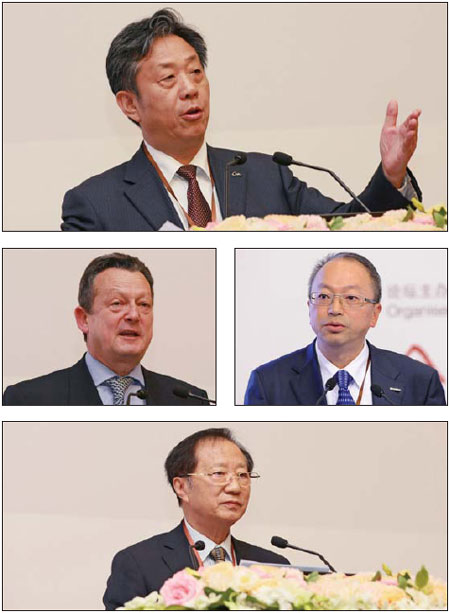At the same time, China has also become an increasingly important battlefield that foreign brands cannot afford to lose, as it is one of the few oases in a global marketplace that resembles a desert.
Recent estimates indicate that auto sales in Europe this year will not exceed 12.5 million units, the second worst year in the past 20 years.
Ivan Hodac, secretary-general of the European Automobile Manufacturers Association, says that "nobody makes money today in Europe", and the European market shows no signs of picking up next year. "The only companies that are still doing well are companies in the export market (overseas markets), such as Volkswagen, BMW and Daimler."
But in China, the auto industry is still on a roll. Although the growth rate has slowed from 40 percent in 2009 to around 10 percent, it is still the most important engine for foreign brands.
Chen Qingtai, research fellow at the China Development Research Center of the State Council, says that the average car ownership in China is 60 among every 10,000 persons, one-tenth the ratio of that in Japan, and one-sixth of South Korea.
"With spending power increasing rapidly, the ownership rate in China is set to grow further," he says.
|
 |
However, most of the foreign automobile companies feel that favorable policies are fast diminishing. Multinational companies are no longer treated as honored guests, but as equal market entities.
Last year, the Ministry of Commerce and the National Development and Reform Commission had indicated that it would no longer encourage foreign investment in the auto sector, but instead push for foreign investment in technologies for the new energy sector.
Song Jian, executive vice-president of Tsinghua Automotive Engineering Institute, says developing new joint-venture brands is one sure way for the foreign brands to regain government support. "The government has sent a clear signal that it will support the new joint-venture brands, as long as the foreign party can contribute something valuable to the Chinese side."
Once the products are defined as Chinese brands, they can enjoy privileges such as government purchases and financial support for research and development, Song says.
Cool Chery
Though it is one the Chinese brands that stands to lose out to hybrids, Chery remains unfazed.
Zheng Zhaorui, general manager of Chery Sales and Service Company, says there are already 300 passenger car models in the Chinese auto market. "Having some more new variants is not going to harm us, but would rather prompt us also to join in."
Yuan Zhongrong, deputy general manager of Guangzhou Automobile Group Co, says he does not pin too much hope on the hybrid brands, as they often use obsolete production platforms. "I would instead prefer to focus on development of indigenous Chinese brands."
But he admits that cooperation is the long-term trend as the biggest advantage that Chinese brands had - low cost - has almost disappeared.
"Multinational companies can now control costs as effectively as the Chinese brands did, so the Chinese brands have no choice but to set up more joint ventures."
